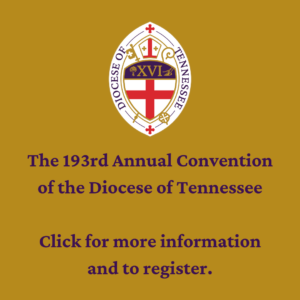
“But the Lord God called to the man, and said to him, “Where are you?”(Gen. 3:9).
One of the searching questions that people ask in the face of catastrophe is “Where were you God?” Where was God in the tragedy of the school shooting; in the devastating diagnosis delivered in the doctor’s office; in the agony of the battlefield, or the emergency room, or on death row? This is a question that people ask, not so much for themselves but more often for others, in the midst of tragedy. It’s a searching question because when we ask it, we are on the lookout for someone, searching for evidence of the presence of God.
This question is asked in a pastoral mode but it has theological foundations. Where does evil come from? Why do bad things happen to good people? Some evils we can blame on ourselves: that’s easy. If we hadn’t done “x” then “y” would not have followed. Other things we can blame on other people, and that may be even easier. But there are a whole host of other things, terrible things that happen, for which there may be no ready explanation. We can blame the universe, or put it down to karma, or simply decide that life makes no moral sense. Again the question, “Where were you God?”
There are no simple answer here, but Christian faith gives us some tools. We start with our reading from Genesis, part of the account of the primal catastrophe. As the story goes, evil enters the world through human disobedience. God set boundaries that human beings overthrew; they were tempted and ate the fruit of the tree of the knowledge of good and evil, thinking they would become like God. Needless to say, they got more than they were bargaining for.
In the aftermath, no one took responsibility, and the man and the woman started pointing their fingers at anyone but themselves. As the story unfolds, the effect of the primal catastrophe spreads and spreads. Human beings are exiled from the garden, and murder and mayhem grow. Remember Cain and Abel? Human beings seem set on a path that no one can do anything about. Sin and death have entered the world, and it seems impossible to contain them, much less to free ourselves from their effects.
“Where were you God”, in the face of all this? Again, Christian faith puts before us the sign of the cross. and Christ himself on Good Friday. By his agony and bloody sweat, Jesus has taken upon himself the multi-generational burden of our sins and their consequences. If we are searching for where God was when disaster struck, we discover Christ already present in the catastrophe, carrying not only his cross but ours as well. Where was he is the emergency room, on the battlefield, in the schoolroom shooting? Well, he was right there, even if we missed him.
Now back to Genesis. “Where were you God?” is our own legitimate question, but there is another searching question in our reading, important for us to consider. God walks in the garden in the cool of the evening breeze and, seeing nobody, asks the question, “Where are you?”. Of course, in our reading, he’s searching for Adam and Eve, who are hiding themselves in shame, but there’s more to the question for us than we might think.
It’s a searching question because God is searching for us. No matter how far we stray from paradise, God never gives up the search. “Rejoice with me, for I have found my sheep that was lost” (Lk. 15:6), Jesus says in the parable of the lost sheep. On the one hand, it seems like we are searching for God and not finding him. But on the other hand, the greater truth is that God is not the one that is lost, but that we are, hiding in our sin and shame; and the good news of the Gospel is that, in spite of this, God will not let us go. By the resurrection of Jesus Christ, he has overcome sin and death, and come to lead us home.
“But the Lord God called to the man, and said to him, “Where are you?” (Gen. 3:9). Today as part of our liturgy we too will ask our confirmands a number of questions. In response, they will reaffirm their renunciation of evil and renew their commitment to Jesus Christ. All of us will be invited to reaffirm our own baptismal vows along with them. Every question addressed to them and us today in our liturgy is a form of God’s question in the garden. Where are we today? Where do we take our stand in the sight of God? Through the prayer of this congregation and the grace of this sacramental rite, God is providing that place for us to stand: the place where God can find us, and where we can answer his call.